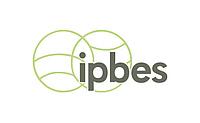Photo: IISD/ENB (www.iisd.ca/ipbes/ipbes3/12jan.htm)
About IPBES

The Intergovernmental Science-Policy Platform on Biodiversity and Ecosystem Services (IPBES) provides policymakers with objective and reliable information about the state and development of biodiversity and ecosystem services. It was established in 2012 and is administered by the United Nations Environment Programme (UNEP). Its secretariat is in Bonn (Germany).
IPBES consists of:
- Official members: They take part in the IPBES plenaries and pass resolutions. Currently 136 states, including Germany, are represented in IPBES.
- Experts: Scientists and other experts that are nominated by governments and organisations and, for example, contribute as authors or reviewers or take part in task forces.
- Observers: Organisations, for example intergovernmental organisations, universities, societies or environmental associations can be accredited by IPBES and take part in IPBES plenaries as observers.
IPBES does not conduct scientific research on its own, but synthesises and evaluates global knowledge. From this knowledge it derives non-prescriptive recommendations and guidelines for the conservation of biological diversity, which supports policymakers in their work. IPBES also undertakes regular assessments of the current state of knowledge about biodiversity and ecosystem services.
More information about IPBES can be found here:
IPBES international: www.ipbes.net
IPBES Koordinierungsstelle für Deutschland (in German): www.de-ipbes.de/20.php
NeFo (Netzwerk-Forum zur Biodiversitätsforschung Deutschland; in German): www.biodiversity.de/de/ipbes-co
iDiv employees and members currently or previously active within IPBES
News from the iDiv consortium with reference to IPBES:
6. Mai 2019: Weltbiodiversitätsrat IPBES stellt lang erwarteten Globalen Bericht vor.
Pressemitteilung iDiv:
https://www.idiv.de/de/news/archiv-2019/news-2019-single-view.html?tx_ttnews%5Btt_news%5D=1518&cHash=ad792ef36f79e04b7a0ef05e3656d335
12. Dezember 2016: Prof. Dr. Josef Settele wurde zu einem der Vorsitzenden für das Globale Assessment des Weltbiodiversitätsrates berufen:
„Alles, was wir über Ökosysteme wissen. Und über Artenvielfalt.“
Josef Settele im Forschungsquartett von detektor.fm
Podcast anhören
Pressemitteilung UFZ:
http://www.ufz.de/index.php?de=36336&webc_pm=52/2016
Pressemitteilung BMBF / BMU:
https://www.bmbf.de/de/globale-bestandsaufnahme-zur-biologischen-vielfalt-angelaufen-3694.html
Weitere Meldungen zu IPBES:
März 2016: Prof. Dr. Josef Settele und Dr. Carsten Neßhöver im Resonator-Podcast:
https://resonator-podcast.de/2016/res081-der-weltbiodiversitaetsrat/
März 2016: Standpunkt „Erste Erfolge des Weltbiodiversitätsrates nicht ausbremsen“
http://www.ufz.de/index.php?de=40797
Februar 2016: Interview „Ein guter Bericht, der viele Akteure einbezieht“
http://www.ufz.de/index.php?de=40268
Januar 2015: Interview „Der Weltbiodiversitätsrat IPBES tagt in Bonn“
http://www.ufz.de/index.php?de=36804
April 2013: Standpunkt: „An die Arbeit, aber welche und wer? Der Weltbiodiversitätsrat IPBES startet in sein erstes Jahr“ www.ufz.de/index.php
















